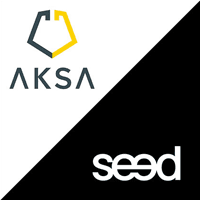

APJ Abdul Kalam School of Environmental Design : Admission 2025, Cutoff, Courses, Fees, Placement, Ranking
The fee structure for the APJ Abdul Kalam School of Environmental Design in Muvattupuzha is designed to be transparent and accessible, ensuring that students can plan their finances effectively while pursuing their educational goals. The institution offers a range of programs, each with its own fee structure that reflects the comprehensive educational experience provided. The fees cover tuition, materials, and other essential services that support the academic journey.
Tuition fees vary by program, depending on the course duration and the specialization chosen. For instance, undergraduate programs typically have a different fee structure compared to postgraduate offerings, reflecting the level of education and resources provided. In addition to tuition, students should be aware of other annual fees that may include registration, laboratory usage, and extracurricular activities. The school also offers flexible payment options, allowing students to pay their fees quarterly, which can ease the financial burden.
The college aims to offer competitive fees relative to the quality of education and facilities available. Scholarships and financial aid options may also be available to eligible students, which can further reduce the financial strain. The fee structure is regularly reviewed to ensure that it remains aligned with the evolving educational landscape and industry standards, providing students with a high return on their investment in education.
Here’s a breakdown of the courses offered at APJ Abdul Kalam School of Environmental
Design, along with their respective fee structures
Bachelor of Design (B.Des)
The Bachelor of Design program focuses on environmental design principles and sustainable practices. Students explore various aspects of design, enhancing their creativity and problem-solving skills. The curriculum includes both theoretical and practical components, preparing graduates for diverse careers in the design industry.
Bachelor of Architecture (B.Arch)
The Bachelor of Architecture program offers comprehensive training in architecture and urban planning. Students learn about design, technology, and the cultural aspects of architecture, equipping them with the skills necessary to design functional and aesthetically pleasing structures.
The Master of Design program is aimed at students seeking to specialize in various design fields. The curriculum emphasizes research and advanced design practices, encouraging innovation and critical thinking among students.
This diploma program provides foundational knowledge in sustainable architecture, covering eco-friendly building practices and materials. It’s designed for professionals looking to enhance their skills in green architecture.
Certificate in Interior Design
The Certificate in Interior Design focuses on the essential skills needed for creating functional and aesthetically pleasing interior spaces. Students learn about space planning, materials, and design principles.
Hostel Fee Structure
The APJ Abdul Kalam School of Environmental Design also provides hostel facilities for students who require accommodation during their studies. The hostel fee structure is designed to be affordable, ensuring that students have access to safe and comfortable living arrangements while they pursue their education. Hostel fees typically include accommodation, utilities, and access to communal facilities. The college emphasizes a supportive living environment that fosters community and collaboration among students.
Here’s a breakdown of the hostel fees:
This fee structure aims to provide students with a comfortable living experience, conducive to academic success and personal growth. With various accommodation options available, students can choose the best fit for their needs and budget while enjoying their time at the APJ Abdul Kalam School of Environmental Design
Frequently Asked Questions
No, the fees cover tuition and essential services, but specific materials or specialized tools may require additional expenses based on the course requirements.
Yes, students can opt for a quarterly payment plan, which divides the annual fees into four installments to help ease the financial burden.
Yes, the school offers scholarships and financial aid options based on academic merit and financial need, which can significantly reduce tuition costs for eligible students.
Hostel fees cover accommodation, utilities, and access to communal facilities. A security deposit is also required, which is refundable upon completion of the program.
Yes, there may be other annual fees, including registration, lab usage, and extracurricular activities, which vary based on the chosen program.